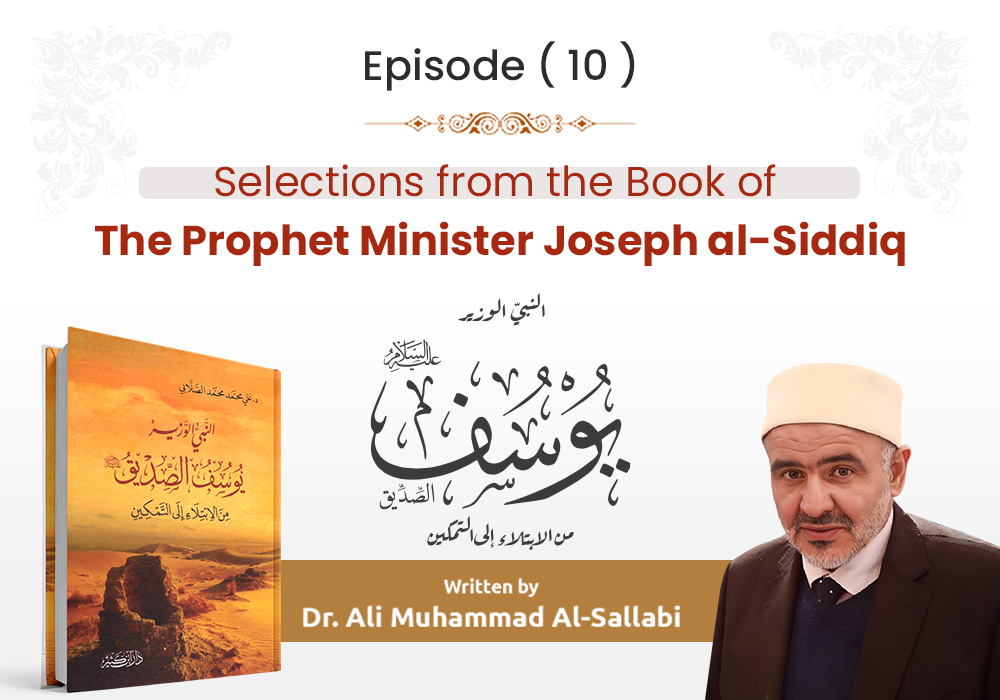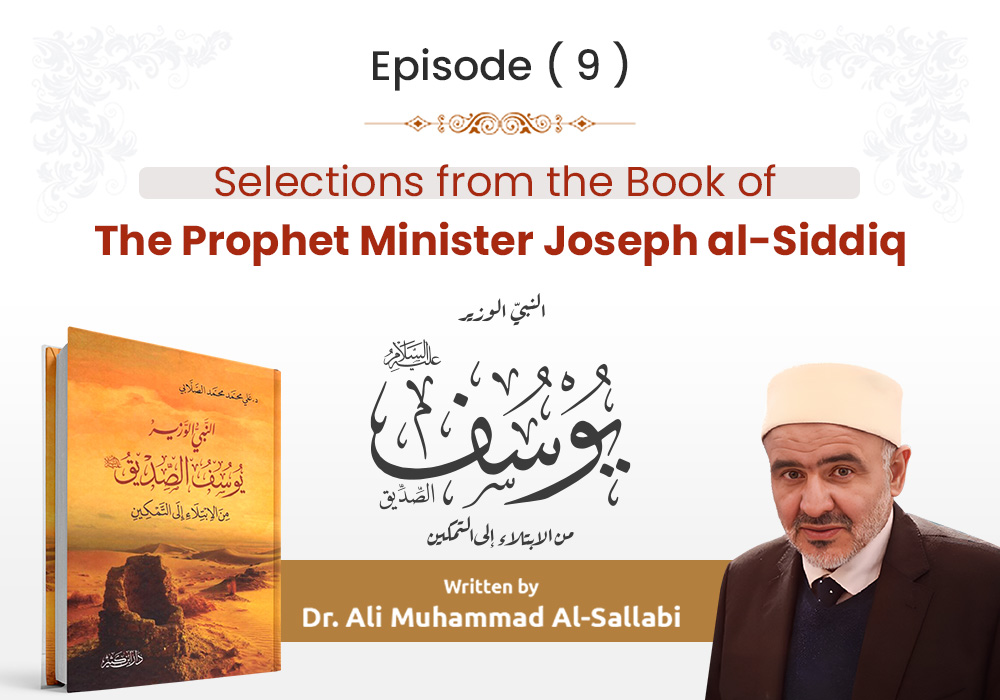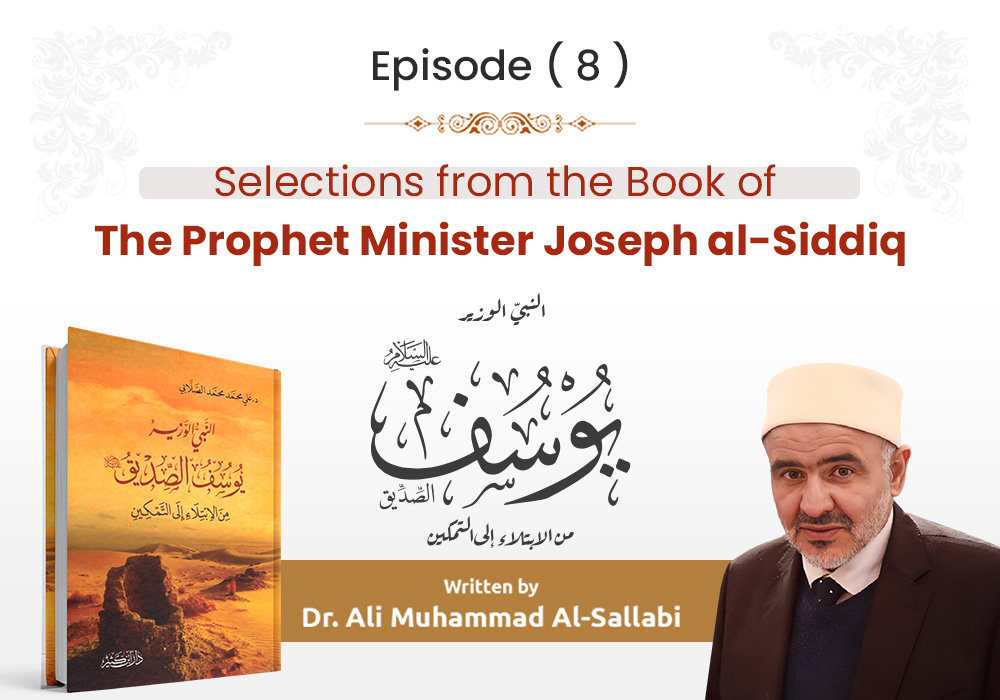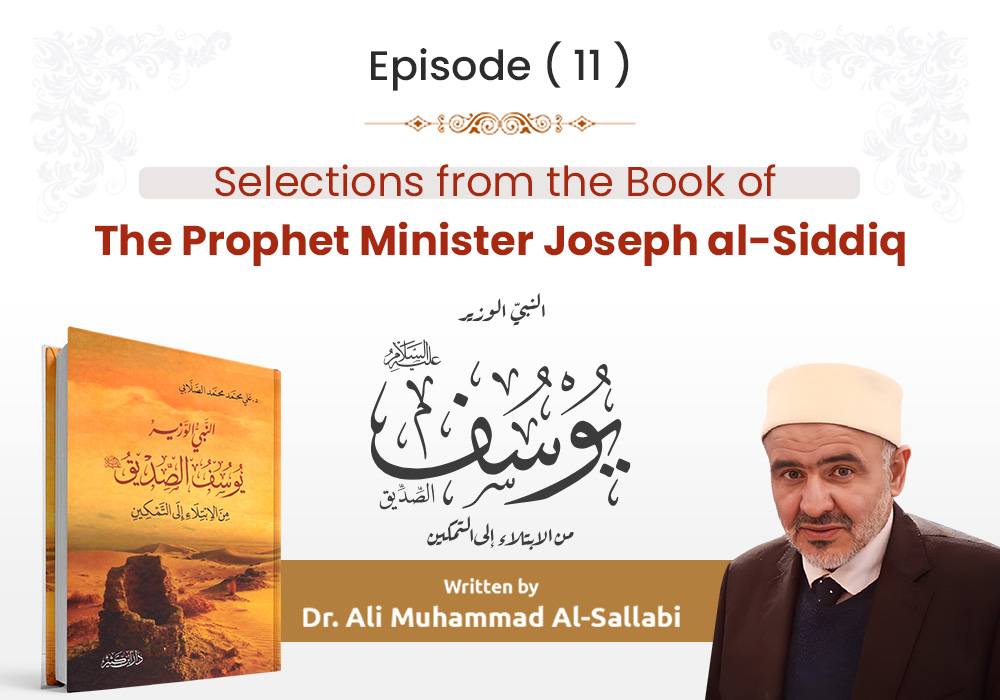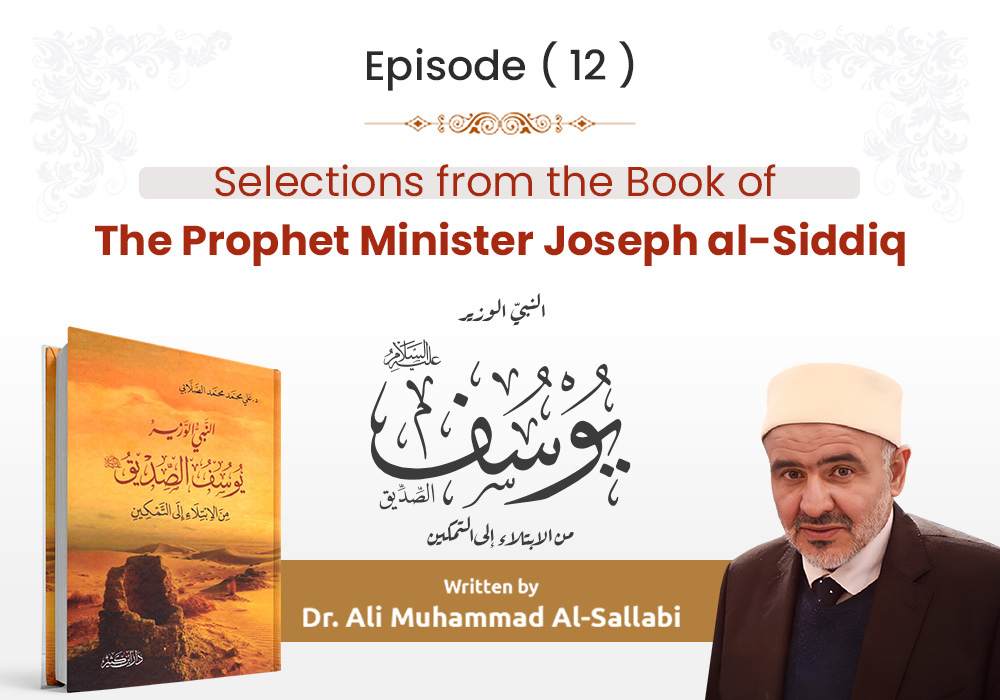The most important purposes of Surah Yusuf
Selections from the Book The Prophet Minister Joseph al-Siddiq…
Written by Dr. Ali Muhammad al-Sallabi...
Episode (10)
- Clarifying the story of Prophet Joseph, peace be upon him, with his brothers, and the experiences he encountered in his life, including various lessons and insights.
- In it is the affirmation that some visions may be an indication of a hidden matter, and this is from the fundamentals of prophetic revelations. It is also part of the Eastern wisdom, as will be explained in the verse; {[Of these stories mention] when Joseph said to his father, “O my father, indeed I have seen [in a dream] eleven stars} [Yusuf: 4].
- That the interpretation of dreams is a knowledge bestowed by Allah upon whom He wills among His righteous servants.
- Envy among close relatives.
- The kindness of Allah towards those whom He chooses among His servants.
- Drawing lessons from consequences, loyalty, trustworthiness, honesty, and repentance.
- The settlement of the Children of Israel and his descendants in the land of Egypt.
- The consolation of the Prophet Muhammad (peace be upon him) through the hardships and harm faced by Jacob and Joseph (peace be upon them).
- The Prophet Muhammad (peace be upon him) faced more severe trials and pains from the elites and disbelievers of his people, such as his uncle Abu Lahab, Al-Nadr ibn Al-Harith, and Abu Sufyan ibn Al-Harith ibn Abd al-Muttalib. Although the latter embraced Islam later, harm inflicted by close relatives often cuts deeper into the soul than harm from strangers, as expressed by the poet Tarfah:
- Almighty Allah said: {Certainly were there in Joseph and his brothers signs for those who ask} [Yusuf: 7].
- In it is a lesson about the patience of the prophets, such as Jacob and Joseph - peace be upon them - in the face of adversity, and how the outcome turns in their favor.
- And in it is a lesson about the migration of the people of the Prophet (peace be upon him) to the land where he settled, just as Jacob and his family did. This implies that Quraysh would migrate to Medina in emulation of the migration of the Prophet Muhammad (peace be upon him).
- In it are lessons from the history of ancient nations and civilizations, including their laws, governmental systems, punishments, and trade practices. It addresses the enslavement of an orphan boy, the slavery of the thief, the conditions of prisoners, and the monitoring of measures and weights.
- In this Surah, there is a unique style among the miraculous aspects of the Quran, namely the miraculous style of storytelling. This style particularly appealed to the people of Mecca, who were amazed by the stories they received from the Quran about various nations, including those of non-Arabs and Romans. People like Al-Nadr ibn Al-Harith and others would taunt Quraysh, claiming that what the Quran mentions about the fates of nations is nothing more than myths borrowed by Muhammad, peace and blessings be upon him, from ancient tales.
- Al-Nadr used to frequent the gatherings in Hira, learning the tales of Rustam and Esfandiyar, the heroes of Persia. He would then go to the Quraysh and say, 'By Allah, I can narrate a story better than Muhammad; let me entertain you with a superior narrative.' He would share Persian stories with them, sometimes elongating parts of them beyond the usual Persian storytelling tradition to make it appear more captivating to his audience. This Surah, with its captivating narrative style, came as a challenge to them, inviting them to respond with something similar.
- Despite that, this Surah has folded much of the storytelling by excluding elements that do not have a significant impact on the lessons to be learned.
- Therefore, you find repeated statements throughout the Surah, such as {And thus We established Joseph in the land} [Yusuf: 56] and {Thus did We plan for Joseph} [Yusuf: 76], offering lessons from different parts of the story.
|
‘‘The injustice of close relatives remains more cutting for a person than the descending strike of a sharpened sword’’. |
And the wisdom that runs through these verses is reflected in the words of the righteous, as in the verse: {upon Him I have relied, and upon Him let those who would rely [indeed] rely} [Yusuf: 67], and the verse: {Indeed, he who fears Allah and is patient, then indeed, Allah does not allow to be lost the reward of those who do good} [Yusuf: 90].
- Ali Muhammad al-Sallabi, The Prophet Minister Joseph al-Siddiq, pp. 54-56.
- Signs for those who ask, previous reference, p. 19.
For further information and review of the sources for the article, see:
The Book of ‘’The Prophet Minister Joseph al-Siddiq’’ on the official website of Sheikh Dr. Ali Muhammad al-Sallabi:


